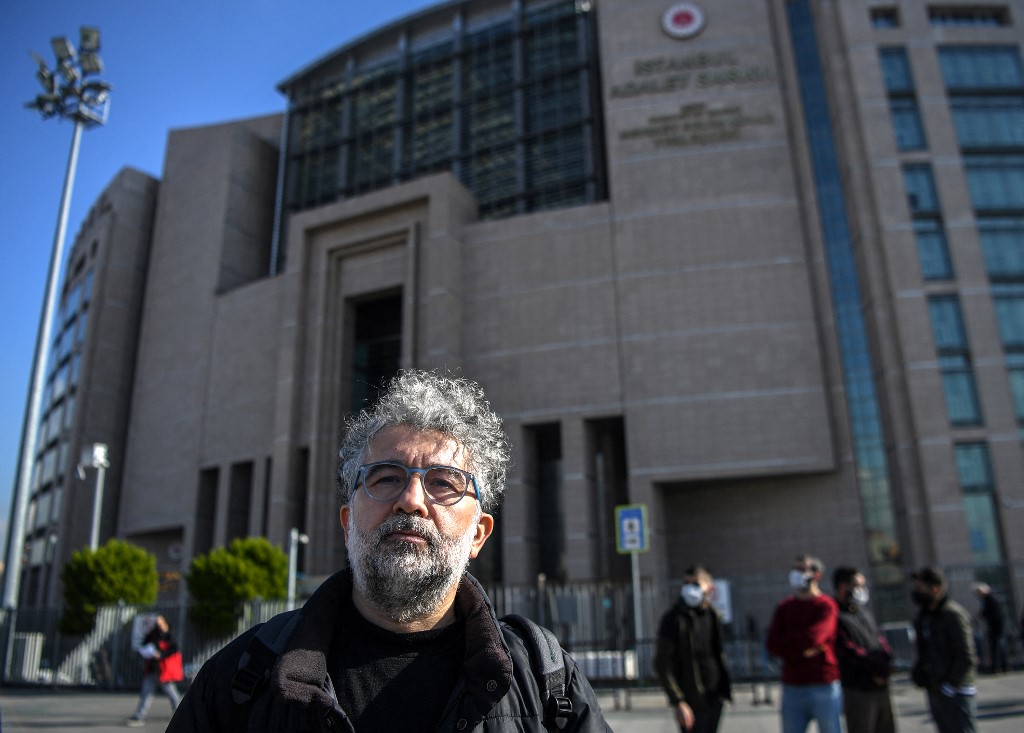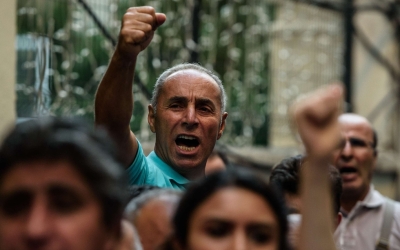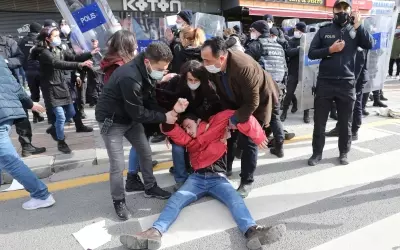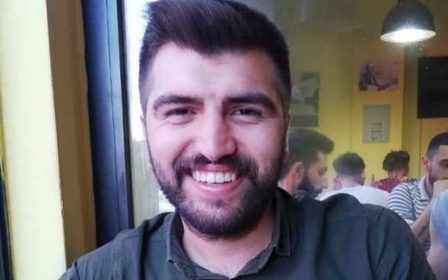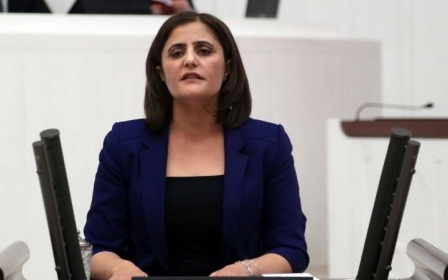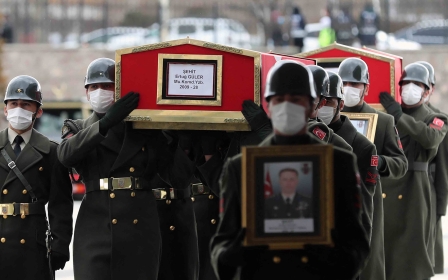Turkey: Erdogan's human rights initiative raises eyebrows of beleaguered activists
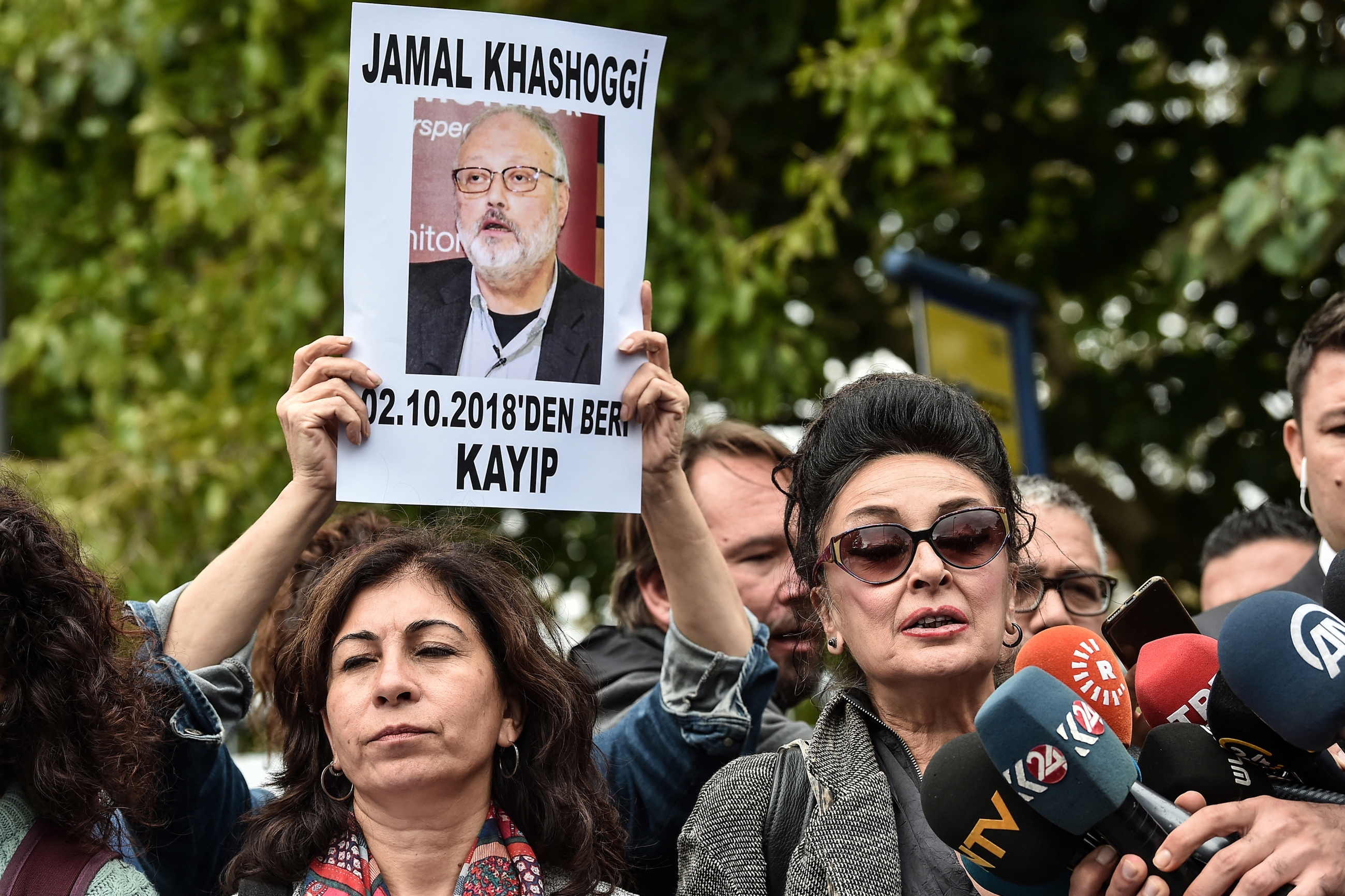
The Turkish government announced on Tuesday the creation of a new human rights action plan, with President Recep Tayyip Erdogan saying that the state had an "obligation to protect, in all of its affairs and acts, and with all of the state institutions and organisations, the physical and moral integrity and the honour and dignity of individuals".
He added the new plan, which would be implemented over a two-year period, would be based on standards set down by international human rights monitor organisations and would form the backbone of a "new civilian constitution".
Erdogan's stated commitment to re-establishing the principle of human rights in Turkey, which was recently ranked second only to Mali in a ranking of decline in freedoms over the last decade by Freedom House, will likely raise a few eyebrows.
'I survived armed attacks twice. Of course I have worries - but I never thought of giving up the fight'
- Eren Keskin, Human Rights Association
And no-one's eyebrows are likely to rise more than those of Eren Keskin, the co-head of the Human Rights Association (IHD), one of Turkey's oldest human rights monitoring organisations.
Keskin was sentenced on 15 February to a six-year prison sentence on charges of "membership of an armed terrorist organisation" in a case relating to her guest editorship of a pro-Kurdish newspaper, Ozgur Gundem.
New MEE newsletter: Jerusalem Dispatch
Sign up to get the latest insights and analysis on Israel-Palestine, alongside Turkey Unpacked and other MEE newsletters
The case dates from 2016, when the paper was threatened with legal action, prompting several journalists and writers, including novelist Asli Erdogan and Turkish Reporters Without Borders (RSF) chief Erol Onderoglu, to assume the rotating role of guest editor in an effort to protect it and its staff.
Though she is appealing the decision, it is just the latest of hundreds of jail sentences, threats and violent attacks that she and other IHD workers have faced since the organisation was launched in 1986.
"People like us who fight against the 'red lines' of the state have always faced threats to their safety of life," she told Middle East Eye.
"I try not to think about this much. Because when fear dominates your life, you cannot work. I survived armed attacks twice. I of course have worries - but I never thought of giving up the fight."
Though better known due to the longevity of the Ozgur Gundem issue and the numerous high-profile people involved in the campaign, it is just one of the many fronts the lawyer is fighting on. She currently claims to be facing a further 143 cases against her.
She is also appealing a separate case from May 2019, in which she and six employees of the newspaper were each charged with producing "terrorist propaganda" and sentenced to more than three years in prison.
"I was a lawyer for Ozgur Gundem when it first began publishing in the 1990s. The daily faced enormous pressure because it reported rights violations, particularly in Kurdistan. It was bombed, its columnists were murdered," said Keskin.
Despite a long and troubled history with the Turkish state, she said the situation had become "extremely hardline" recently.
"There is not even the slightest tolerance for opposition. Everyone who raises their voices is oppressed. The reason why we face such pressure is because we refuse to submit."
Violations of the state
The IHD was formed in 1986 against the backdrop of a military coup and the beginning of an armed insurgency.
The 1980 coup, which nominally aimed at quelling increasing violence between left-wing and right-wing armed groups in the country, saw the establishment of a new constitution that heavily restricted both the democratic process and the ability of minorities to organise. Kurdish language and identity were effectively outlawed in the public arena.
In 1984, despite the formal restoration of liberal democracy, the Kurdistan Workers' Party (PKK) launched an armed struggle against the state, arguing that there was no route to Kurdish liberation in the country through the ballot box.
The next two decades would see a brutal conflict involving the deaths of more than 40,000 people, and human rights abuses on both sides.
Trade unionists, pro-Kurdish and left-wing activists were often targeted by far-right groups with links to shady deep-state operations. Many disappeared and were never seen again, during a period that has been referred to as Turkey's "dirty war".
It was in this environment that Keskin became involved with the IHD.
A lawyer of Kurdish-Circassian parentage, she received her first high-profile jail term in June 1995, sentenced to serve two years and six months in Bayrampasa prison in Istanbul over the use of the word "Kurdistan" in a newspaper article. She was eventually released in October that year, following changes in the law.
She also survived armed attacks in 1994 and 2001, and would co-found a legal aid project for women who were raped or otherwise sexually abused by national security forces, following her experience of sexual violence in prison.
She said that, despite cosmetic changes, the "raison d'etat" in Turkey hadn't fundamentally changed since the "dirty war" years.
"The methods are different. There was no social media in the 1990s. The state was then able to hide numerous incidents like murders and enforced disappearances in custody. The struggle for human rights rendered the state's rights violations visible," she said.
The IHD has been under intense state scrutiny since its inception.
Its campaigns over freedom of expression, abolition of the death penalty (achieved in 2004), rights and medical access to prisoners, extrajudicial killings and disappearances, have been closely associated with the long-running Saturday Mothers campaign, and its support for the rights of ethnic and religious minorities have made it a thorn in the side of repeated governments.
Clash with the government
At one time, the organisation even highlighted the arrest and imprisonment of Erdogan, then the mayor of Istanbul, in 1998 as a violation of freedom of speech in Turkey. But the current relationship between the president and IHD is far from cordial.
Following the killing of 13 prisoners of the PKK on 14 February, IHD released a statement saying that, while the PKK was "responsible for the lives of persons it holds captive," they shared blame with the army chief of staff for launching a "risky military operation" in an area with known captives.
Interior Minister Suleiman Soylu lashed out at the organisation, denouncing the IHD as "cani cikasica," a phrased which roughly translates as "cursed" or something wished great suffering or harm upon.
'The state of Turkey does not implement any international convention it has signed. It violates all of them'
- Eren Keskin, Human Rights Association (IHD)
"Since 1984, the terrorist organisation has committed 6,021 civilian massacres... has the [IHD] association said a word for one?" he asked the Grand National Assembly of Turkey.
Accusations of PKK sympathies have dogged the IHD throughout its existence. Though repeatedly condemning violence and the actions of armed groups, its critics have said it too often turns a blind eye to the PKK's abuses.
In 2005, founding member Adalet Agaoglu, a novelist and playwright, publicly quit IHD, claiming it had become a "one-sided racist nationalist"organisation, deriding it for refusing to take a stand against "PKK terrorism".
"I believe in freedom of thought and express my thoughts. Motherhood cannot be Kurdish or Turkish - not only Kurdish mothers, but also Turkish mothers cry in this country," she wrote in her resignation letter, which was widely publicised by Turkish nationalist media outlets.
The IHD has long denied all PKK links, however, and has said the accusations are an attempt to undermine its work on civil rights and state abuses in the Kurdish-majority southeast.
'Dangerous' new NGO law
Despite Soylu's angry rhetoric, a greater existential threat to the IHD comes perhaps from a new law passed in late December, which regulates the activities of NGOs in Turkey.
Denounced as a "dangerous tool to limit freedom of association" by Human Rights Watch, the new law allows the Interior Ministry to suspend NGO board members facing criminal investigation under the country's "vague and widely misused" terrorism laws.
Some 475 NGOs, led by the IHD, have already signed a declaration condemning the new law.
There is plenty of work for the IHD at the moment - the ongoing crackdown at Bogazici university and the mass arrest of supporters of the pro-Kurdish Peoples' Democracy Party (HDP), another group accused of PKK links, just to name two.
There have also been numerous concerns raised about the health conditions of political prisoners and reports of abductions of students and political activists by unknown groups - two themes that have stuck with the IHD throughout its existence.
Despite some pressure, such as recent attempts by US lawmakers to raise rights abuses in Turkey with the White House, Keskin feared that ultimately there would be little international accountability.
"The state of Turkey does not implement any international convention it has signed. It violates all of them," she said.
"And these conventions have monitoring mechanisms. Yet what determines international relations is, unfortunately, mutual economic interests, not human rights.
"Those who rule the state want to go on ruling through intimidation and polarisation."
This article is available in French on Middle East Eye French edition.
Middle East Eye delivers independent and unrivalled coverage and analysis of the Middle East, North Africa and beyond. To learn more about republishing this content and the associated fees, please fill out this form. More about MEE can be found here.


